Thailand moves closer to ban on toxic farm chemicals as concerns about food safety and human health grow
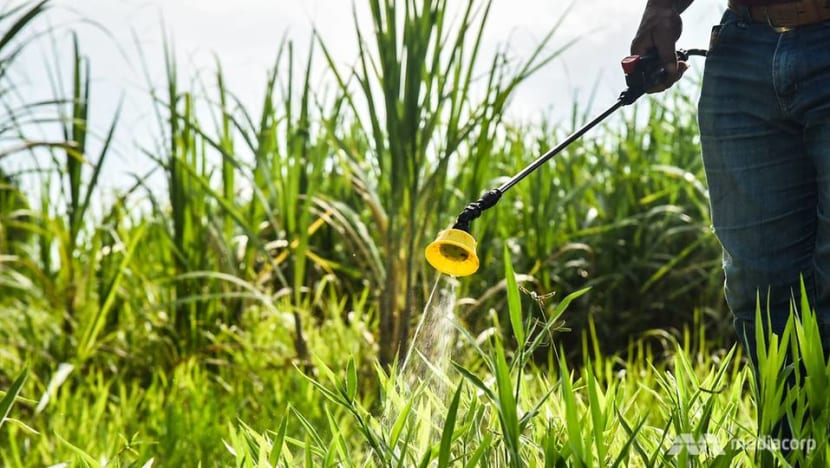
Thailand is moving closer to banning paraquat and other controversial farming chemicals. (Photo: Jack Board)
NONG BUA LAMPHU, Thailand: A toxic mist had descended as Somkid Sukchai walked through rows of sugarcane crops close to his home. A white dew dripped off the leaves of weeds growing along the way. It was a poisonous route.
The 70-year-old from Nong Bua Lamphu in northeast Thailand had been asked by his daughters to throw rice seeds in their field. To reach it, he had to pass through the property of his neighbour, who had just sprayed a powerful herbicide.
Somkid had a small, fresh cut on his leg. As he washed in the river after finishing his work, he started to feel pain. It would be the start of a frightening health scare.
“I was shivering from high fever. I was so cold that even with two or three blankets covering me, I still felt cold,” he said. “After that, the leg kept swelling and swelling. On the day I went to see a doctor, I vomited blood. A lot of blood.”
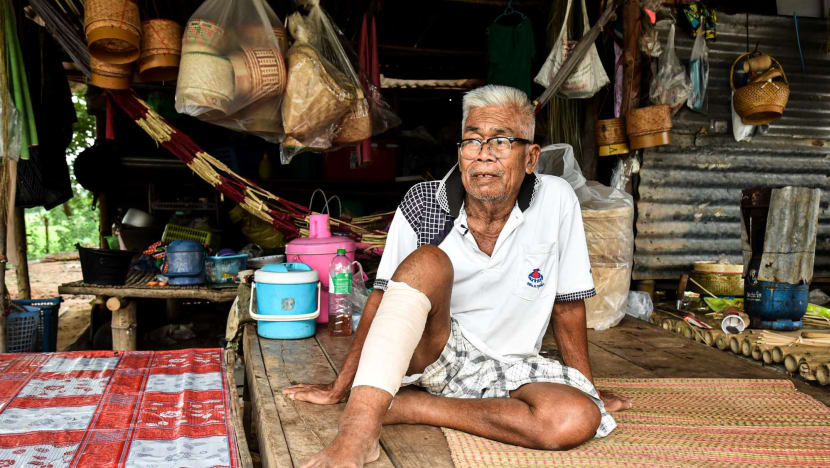
Somkid had a severe infection - called necrotising fasciitis, which is more commonly known as a flesh-eating disease. It was suspected to be linked to exposure to paraquat, a toxic agricultural herbicide, commonly used by farmers across the country. Doctors had to fight to save his leg.
For years, activists, academics and even politicians have been trying to have the use of farming chemicals like paraquat restricted or banned in Thailand. Paraquat has been banned in 53 different countries around the world, including China from 2020 and Southeast Asian nations such as Cambodia, Laos and Vietnam.
While other neighbouring nations have taken measures against it, Thailand has until now remained steadfast in allowing it.
But on Monday (Oct 7), representatives of four different sectors - the government, importers, farmers and consumers, as well as Deputy Minister of Agriculture and Cooperatives Mananya Thaiset - voted unanimously to ban paraquat, as well as other potentially dangerous farming chemicals glyphosate and chlorpyrifos.
This vote result is now expected to be submitted to the decision making body, the National Hazardous Substances Committee. If it is approved at this stage, the three substances could have their manufacture, importation, export, and sale prohibited in Thailand from Dec 1. The result will also be submitted to Prime Minister Prayut Chan-o-cha, who had ordered the establishment of the four-sector working group.
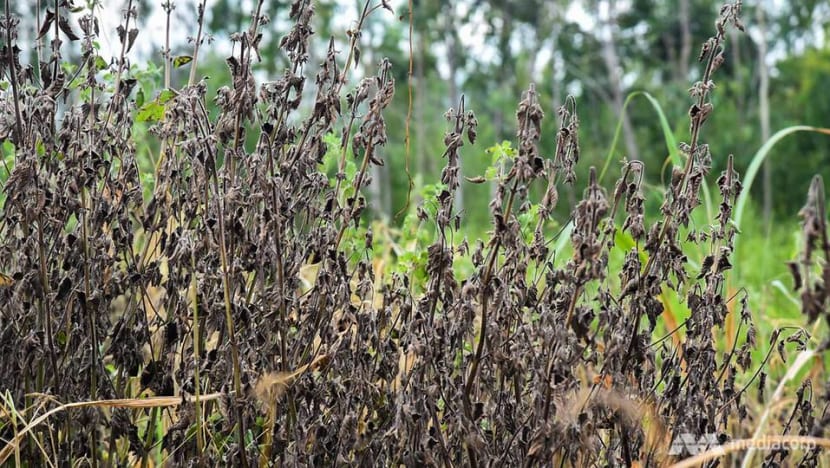
The importation of paraquat has exploded over the past decade. Thai farmers have become increasingly reliant on what is a relatively cheap and effective weed killing product with the amount being imported into the country peaking dramatically in 2017 at just over 44 tonnes, nearly triple the amount 10 years before.
With the increased use of farming chemicals, health issues have followed. According to the National Health Security Office, farm chemicals have resulted in at least 1,715 deaths over the past three years, 600 of which were directly attributed to insecticides, pesticides, fungicides and herbicides. In addition, about 5,000 people required hospital treatment.
Today, Somkid’s leg remains wrapped in a thick bandage, which covers a dark, wet wound. He is off his crutches but still struggles to walk freely. He also is far from the only victim in this small community.
Beyond his wound, there are greater fears about the effects on long term human health and environmental contamination in areas like Nong Bua Lamphu. The science has plenty of skeptics, however, and is fiercely contested.
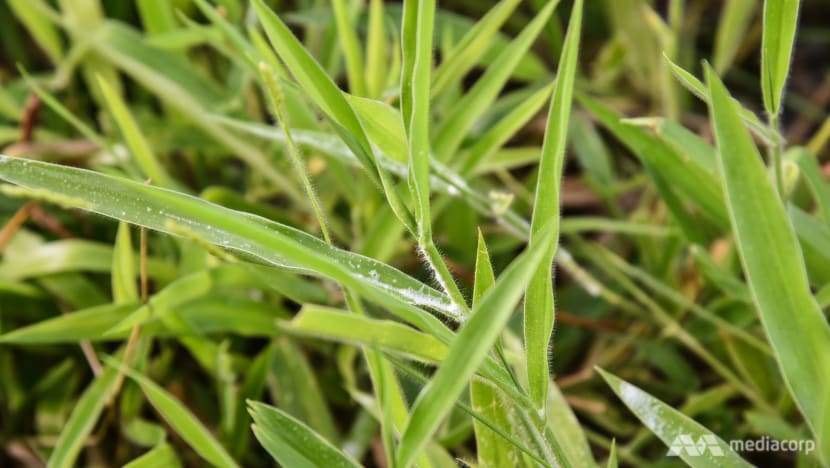
‘NOBODY WANTS TO DIE’
Paraquat, which is manufactured by a number of companies, has been used since the 1950s to control weeds. It kills them on contact and is designed to break down immediately in soil. Its use in Thailand grew as farmers shifted from annual rice crop harvesting to year-round cultivation. The strain on fields meant more diseases and pests that required chemical solutions.
In Thailand now, growers of corn, maize, sugarcane, rubber and cassava rely most heavily on herbicides to aid their farming. Spraying paraquat on weeds saves significant time and toil compared with physically removing them.
In highland areas, where ploughing with machinery can be very difficult and exacerbate field erosion, the benefits are most pronounced. But as a result, researchers say that chemicals have been sweeping into water sources and flowing downstream where the effects are felt.
Recent studies in northern provinces including Nong Bua Lamphu portray a concerning picture for food, water and human health.
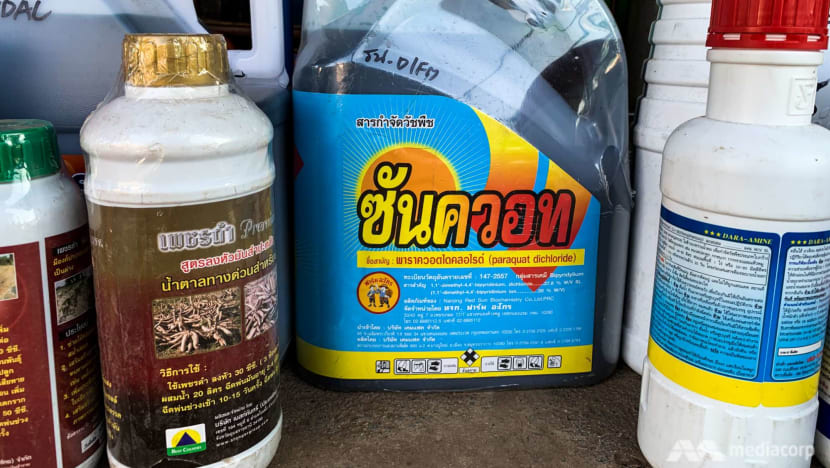
Dr Puangrat Kajitvichyanukul, a professor of chemical engineering at Naresuan University, has done extensive research on the accumulation of chemicals in the environment. In Nong Bua Lamphu province in 2018, the paraquat concentration in reservoirs and other water supplies was found to be “extremely dangerous”. Tap water in 25 different communities was found to be contaminated by paraquat.
“We found huge concentrations in the river almost everywhere in Nong Bua Lamphu. That has contaminated the land and also the vegetables,” she said.
“We found high concentrations of paraquat in fish as well. We said, we can’t let it be like that without doing anything. If the people have contact with the water, they get a burning on the skin.”
The cases of necrotising fasciitis in the same Thai provinces in which paraquat was found in high concentrations soared in 2018, according to the study. For the researchers, the evidence suggested a causal connection and it was enough to concern locals.
“They know that the illness does exist and that’s very close to their life. Nobody wants to die. And they are afraid,” Dr Puangrat said.
Elsewhere in the world, studies have linked paraquat to Parkinson's disease, an impact on women’s reproductive health and toxicity to vital organs.
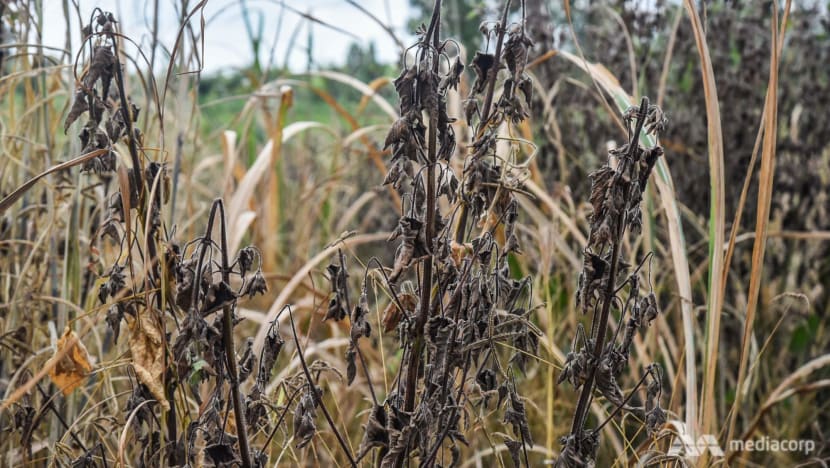
But Syngenta, a Swiss company which uses paraquat as the active ingredient in its Gramoxone herbicide, stands by the safety of the product, telling CNA “that paraquat is safe in normal occupational use according to label instructions”.
“The current studies that we have reviewed have not presented any new or conclusive evidence of these claims of (an) impact to health,” said Thanus Aphinives, the general manager of Syngenta Thailand.
He disputes the findings of Dr Puangrat and others that paraquat can be absorbed into the environment. Thai Pesticide Alert Network, for example, published findings in 2016 after conducting voluntary blood tests on more than 600 visitors to a food fair, showing 61.6 per cent had a risky level of farm chemical contamination.
“When paraquat residues come into contact with soil, it becomes biologically inert and as a result it cannot be taken up by plant roots or other organisms,” Aphinives said. “Paraquat cannot be released from the soil or re-activated by the application of water or other agrochemicals.
“The decision to stop the use of paraquat in some countries is disappointing as these decisions do not fully take into account the importance of the product to local agriculture and the potential cost this could add to farmers. There is no viable alternative to paraquat,” he said.
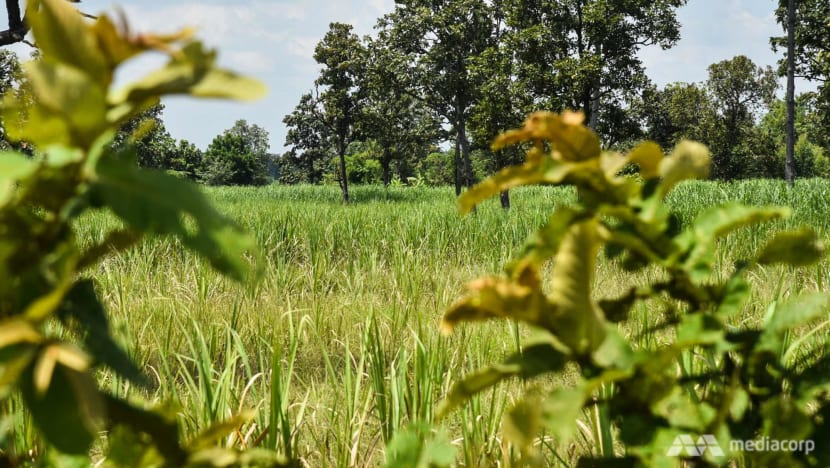
Syngenta has been involved in the training of farmers around Thailand in the proper usage of paraquat. In April, the Thai government announced it was aiming to produce 2,200 experts on farming chemicals to go out and train 1.5 million farmers. Using products like paraquat incorrectly or against label instructions is a huge issue, Dr Puangrat admits.
They overdose and overuse the paraquat. Whatever it says on the label of the pesticide, they’re over that by eight times. That’s why it is a serious problem.
But others say the very nature of paraquat means it is unsafe, regardless of what precautions are taken. “Paraquat has too severe toxicity to safely use. It destroys without choosing,” said Witoon Liamchamroon, the director of BioThai, a think-tank pushing for sustainable agriculture and food security.
“Therefore ‘safe use’ is just an excuse to keep selling this substance.”
The Thai government has so far not accepted the results of the various research into paraquat as conclusive and has been reluctant to issue any ban without a guaranteed chemical replacement for farmers to use.
As recently as February, paraquat’s use was approved by the Hazardous Substance Committee - a group of members from state agencies, academia and the private sector - for a further two years.
But that decision did not dampen critics’ hopes of an imminent ban and before developments this week, many were more optimistic than ever that one would be enacted within months.
‘SHOULD WE BAN VEHICLES?’
The weight of public opinion, and of informed decision makers, seems to be shifting away from the continued use of agricultural chemicals.
Groups have protested in big numbers in years gone by, but certain Thai government departments have stood in the way of reform on paraquat, glyphosate and chlorpyrifos.
Now, leading politicians, including Deputy Prime Minister Anutin Charnvirakul, have become champions for a pursuit of a ban on paraquat. His Bhumjaithai party, an influential bloc in Thailand’s recently formed government, has campaigned hard on the issue.
A ban also has crucial support within the Department of Agriculture, with Deputy Minister Mananya Thaiset committed to order a ban on the three chemicals by the end of this year.
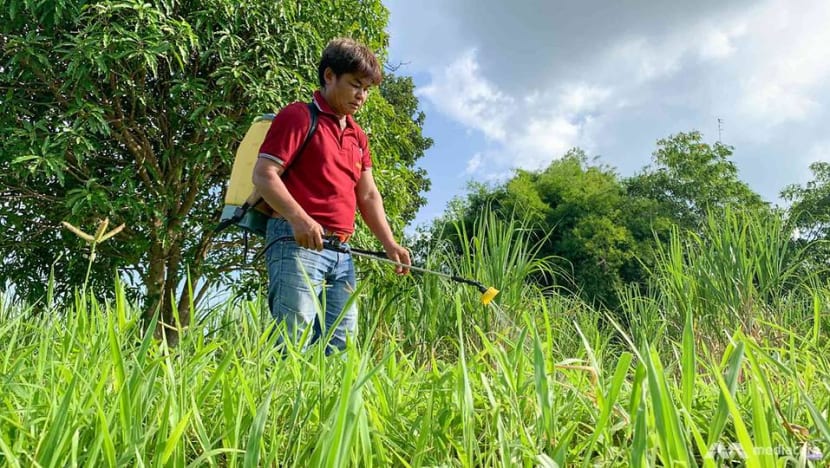
"I can't wait until all of them are banned. The only thing on my mind is how to make it stop right now. I don't believe in the current measures already in place. If the regulations really worked, people wouldn't be falling ill as a result of exposure to these toxic chemicals,” she told the Bangkok Post.
In addition, the Ministry of Education has pledged to ban paraquat in all 47 agricultural and fishery colleges under the ministry’s supervision, while the import limits of the chemicals has also been slashed by 50 per cent this year, seen as a beginning of a phasing out of their availability and use.
Paraquat still has its supporters though, like Professor Rungsit Suwanmankha, an outspoken expert on herbicides and herbicide toxicology. “Do you remember how many people died from road accidents during the Songkran festival and New Year? More than 40 or 50 persons per day. Should we ban vehicles?” he said.
Still, some within affected communities are taking their own pre-emptive actions to curb the possible impact of chemicals on their lives.
A SILENT INVADER
Kudpheung subdistrict in Nong Bua Lamphu has grown weary of the use of some substances. The community has now effectively banned the use of toxic chemicals within its boundaries - unless special permission and notice is given - and it locally enforces penalties on those who flaunt the rules.
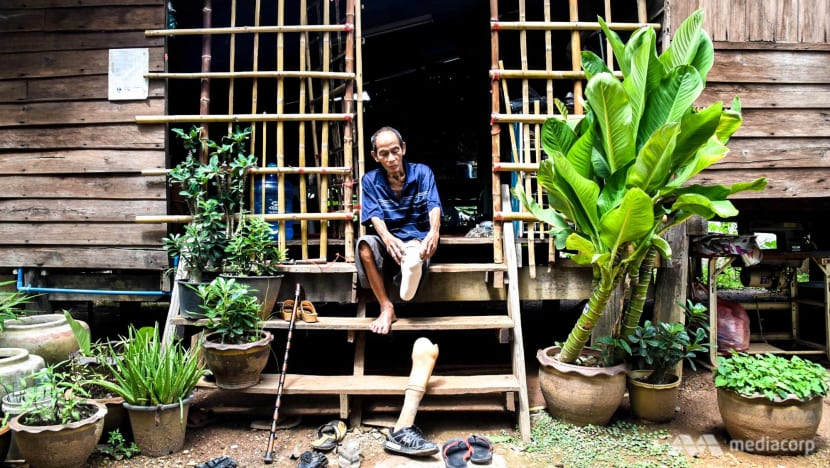
The subdistrict head Thongla Sritahong says some people still use chemicals secretly, hiring outsiders to do the work. He says most locals do not dare do the spraying themselves.
“The villagers have started to understand the consequences,” he said. “If a nationwide ban is possible, I would agree with it because villagers would be safe. If the issue is not resolved now in the future the younger generations will face difficulties. Food will become scarce and it will be risky to go into the water.”
Dr Puangrat describes paraquat as an “end of pipe” issue and describes a ban as a simple, but necessary band aid solution. She has been an advocate of solutions to the issue like the widespread promotion of organic farming practices and financial incentives that encourage farmers to go chemical free.
“To solve this problem, it doesn’t end by banning paraquat. The government has to go to the root of the cause and then they can solve the real problem,” she said.
BioThai’s Witoon believes solutions like using small farming equipment, planting ground cover plants and growing mixed crops instead of monocultures are potential fast solutions to help farmers do away with chemicals.
One village in Kudpheung has begun a chemical-free pilot program, with its pioneer Wichit Sangthong enthusiastically creating his own organic forms of weed killer by experimenting with different ingredients.
In his sugarcane field, Wichit demonstrates the effectiveness of his latest concoctions using banana tree, sour mango and rice whisky.
“It’s safe to use. There’s no impact to the community,” he said. “I will make people in this village stop using this herbicide.”
Additional reporting by Ryn Jirenuwat














